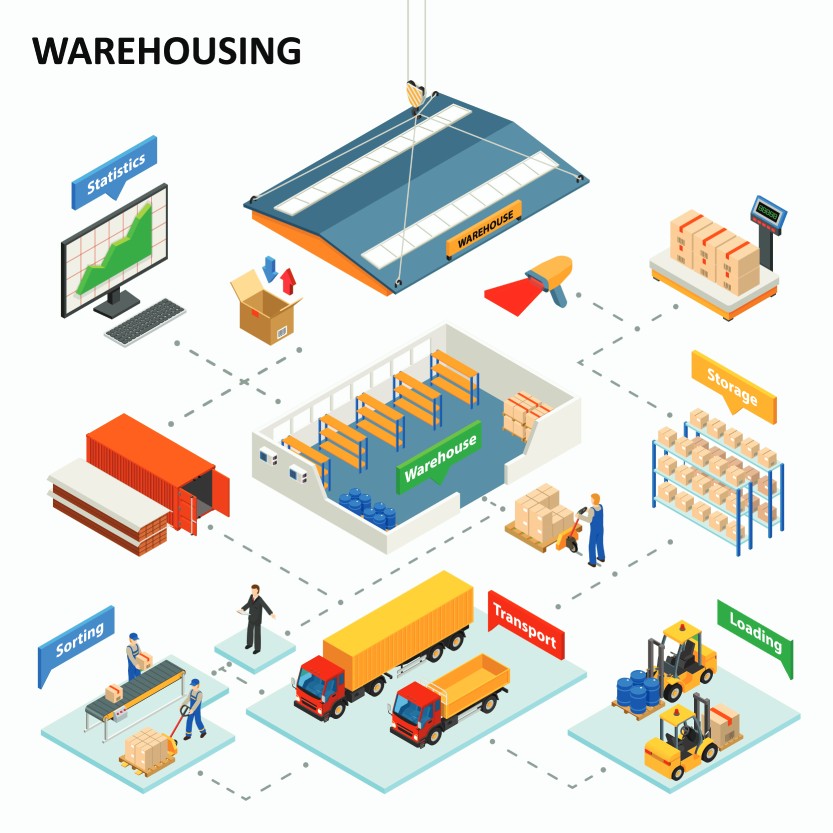 Logistics is a critical component of any business’ supply chain. It helps companies meet customer expectations while keeping costs down.
Logistics is a critical component of any business’ supply chain. It helps companies meet customer expectations while keeping costs down.
Millions of goods travel billions of miles every day through precise transportation networks to reach their final consumers in the right time.
Whether it is fresh produce or frozen food 集運, customers need products that arrive at their doorsteps within the ideal time frame. Using the best digital technologies and warehouse management tools, logistics providers can deliver results that match those customer demands.
Supply Chain Management
Supply chain management is a business process that involves planning, sourcing, producing and delivering goods. It also deals with handling returns and reducing excess inventory.
Logistics is a component of supply chain management that oversees the movement and storage of goods throughout the supply chain. It also tracks the documents and reports that show how items moved from one place to another during their journey.
While both supply chain management and logistics work toward improving processes, SCM focuses more on the needs of business partners and customers. It aims to meet customer expectations and ensure that a company produces the right amount of goods in a timely manner.
Logistics aims to ensure that goods are transported and stored in the most cost-effective way possible. It also identifies problem areas within the logistics system that are wasting time or resources. These can include overproduction, poor transportation providers or wasted space in warehouses.
Inventory Management
Inventory management is the process of tracking raw materials, making products, storing them in warehouses, and shipping them to customers. It is a critical aspect of logistics and requires a robust and automated process to run smoothly.
Companies use a number of inventory management systems to track and control their inventory. These include manual, periodic and perpetual.
Managing inventory is important because it impacts sales, production and cash flow. It’s also an opportunity to reduce costs, improve productivity and increase customer service.
The amount of inventory a business needs is determined by factors such as the product’s quality, durability and marketability. It should be enough to fulfill demand, maximizing revenue.
In addition, a company should have safety stock to cover unforeseen supply or demand disruptions. This buffer inventory helps to mitigate the risk of losing profits if the product runs out.
Freight Brokerage
Freight brokers are a vital part of logistics. They connect shippers with carriers who have capacity to move freight, helping both parties meet their deadlines.
Brokers can help save time, improve efficiency, reduce damage, and increase customer satisfaction. They also help ensure your loads arrive on time and safely.
A good freight broker has a large carrier network, and can find quality drivers that fit your business needs. They’ll vet the carriers in their network, checking their credentials, insurance, safety ratings, and compliance to keep you safe.
They’ll match you with the right carrier for your shipment and handle everything from pickups to delivery. They can even work with you to create a routing guide.
Brokers can save your company money by finding carriers that are willing to move your loads for less than you pay them. They’re also more likely to be flexible and able to absorb a loss in the event that something happens that impacts your business’s bottom line.
Customer Service
Providing excellent customer service is one of the main ways for companies to stand out in the competitive world of logistics. This involves offering customers a pleasant experience and satisfying their needs at every step of the logistics process.
This includes ensuring that all the orders are shipped at the right time and with no delays or damages. It also requires monitoring deliveries at all points and contacting the customer in case of any issues.
It’s important for a logistics company to train its staff to answer calls and provide accurate information about the order status. This can be especially helpful if the company has contracts with third-party logistics (3PL) companies that handle some of the deliveries for them.
A successful customer service experience can increase the brand’s exposure and attract more customers. It can also lead to increased sales and profit growth for the business.
Contents